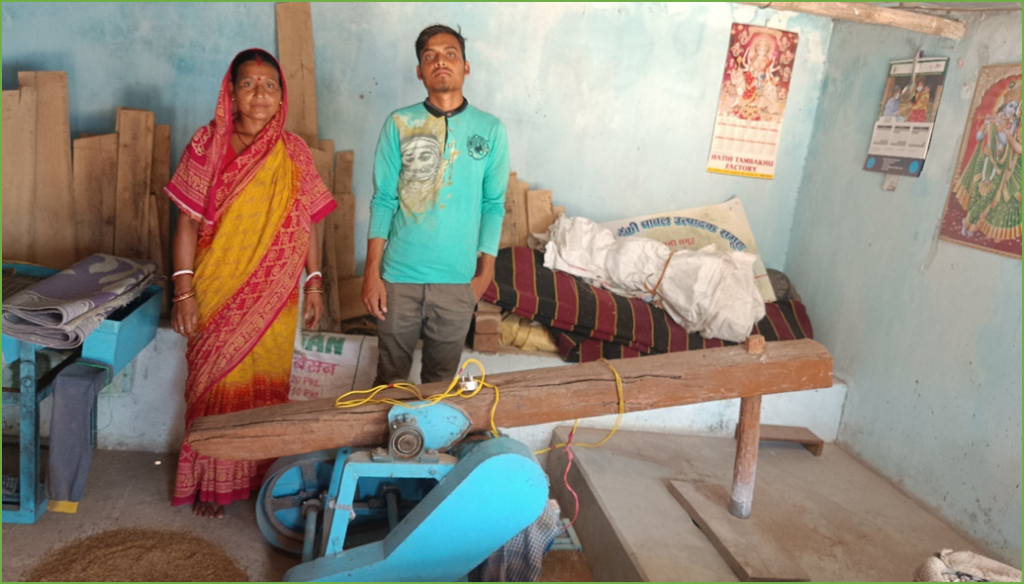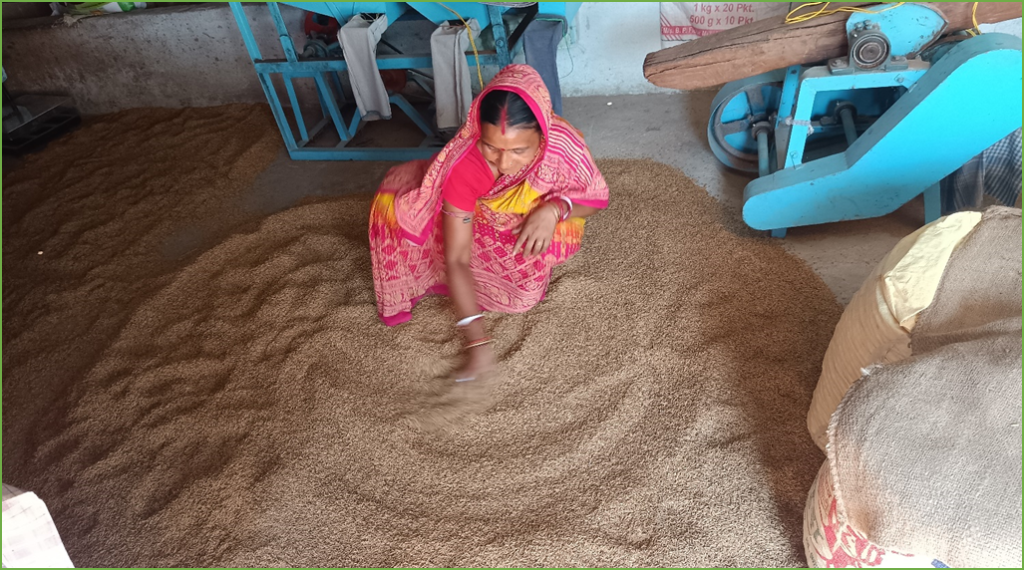Ever wondered about the fantastic flavors our grandparents enjoyed in their meals? Enter Dheki Rice – a time-traveling treat! Made the old-school way with wood pounders, it’s not just rice; it’s a trip down the tasteful memory lane.
Cost-efficient, high productive traditional wound pounders
The intrusion of mills diminished the use of dheki, a traditional method for rice processing.
In rural areas, particularly women farmers, the processing of rice in mills presents numerous challenges. These include limited access to modern milling facilities, high processing costs, and the complex nature of mill operations.
Women farmers, who play a crucial role in post-harvest activities, often face hurdles in getting their produce efficiently processed.
The dheki equipment, a hand-operated wooden tool for husking and milling of rice, emerges as a beneficial alternative. Dheki is also a great cultural symbol in many farming communities which is extremely cost-effective.
This traditional wooden pounder also empowers farmer women by providing them control over the processing of their harvest making the process faster with a remarkable increase in rice production.
Its simplicity, coupled with its effectiveness, makes dheki a valuable tool in enhancing the livelihoods.
The comeback of the ancient tool
The installation of dheki machines by the Centre for World Solidarity (CWS), with support from the Indian Institute of Technology, Kharagpur (IIT KGP), transformed the lives of villagers in Raghunathpur.
Two Self-Help Groups, ANNAPURNA DHEKI CHAWAL UTPADAK SAMUH and DEV. PRIYA DHEKI CHAWAL UTPADAK SAMUH, have embraced dheki, producing a variety of rice such as Balibhojana, Govindo Bhog, Super Salooni, and more.
These groups handle the entire rice processing, from grading to packaging, and creating a market for their products. Beyond rice, they’ve diversified into products like rice powder, dusty rice for poultry, and muri (puffed rice).

Before dheki, 10 kg of paddy took three hours to process into the rice. Now, the machine handles 50 kg at the same time. This not only boosts productivity but also attracts more individuals, especially women, to participate.
Monthly incomes have risen to Rs1500 per worker, showcasing both income generation and women empowerment.
The intervention of dheki not only changed consumption habits but also increased the market value of rice. What used to be sold as paddy at Rs15 per kg is now sold as rice at Rs 60-65 per kg.
Kartik Dan, a resident of Raghunathpur Village, embodies the success of dheki. His family’s income increased significantly, and he has become a role model for his village. Kartik’s dedication to both studies and rice dheki contributes Rs 4000more to the family’s monthly income.

“I and my SHG express gratitude for the dheki tool. The success has motivated us to expand our business by installing a second dheki pounder in our village. To tackle power cuts, we plan to invest in solar power. The group is optimistic about creating a robust market for their products,” says Kartik
Dheki Rice is more than a return to tradition; it’s a catalyst for economic growth, community empowerment, and sustainable practices. As Kartik and his group forge ahead, their success story becomes an inspiration for others to embrace innovative yet traditional solutions for a better tomorrow.

